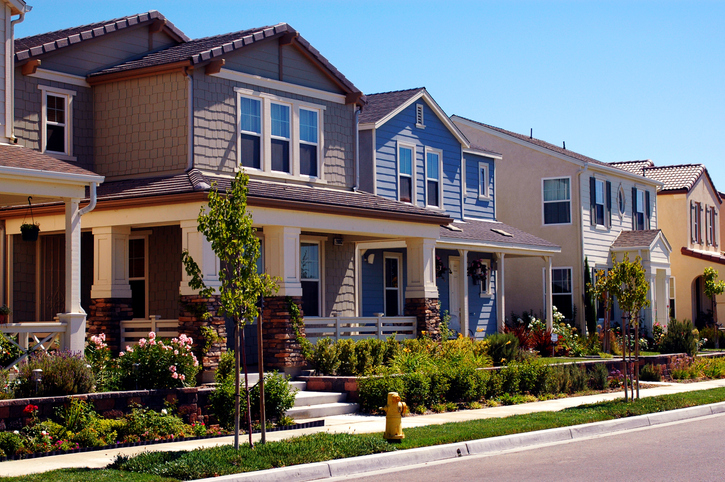The Future of Realty: Trends and Opportunities to Watch
As the genuine estate landscape evolves, it becomes increasingly vital to comprehend the emerging fads and chances that will certainly define the sector in the coming years. With these dynamics at play, a better evaluation of the approaches and adjustments needed for success exposes fascinating opportunities that could improve investment methods and market habits.
Technological Developments in Property
In the last few years, the property sector has actually accepted a wave of technical technologies that are changing typical practices. These innovations have actually dramatically improved effectiveness, transparency, and decision-making procedures within the industry. One of one of the most significant technologies is the surge of huge information analytics, which permits property professionals to analyze market fads, anticipate home values, and identify financial investment chances with extraordinary accuracy. This data-driven technique makes it possible for stakeholders to make educated decisions and reduces the threats connected with residential property deals.
Furthermore, online fact (VR) and enhanced fact (AR) innovations are revolutionizing property advertising by giving immersive experiences for potential purchasers and occupants. These devices allow customers to perform virtual scenic tours of homes, thereby streamlining the search procedure and boosting consumer engagement. Additionally, blockchain modern technology is obtaining grip as a way to safeguard deals and maintain transparent documents, thus reducing scams and quickening the closing procedure.
Smart home modern technologies are also becoming increasingly widespread, making it possible for property owners to monitor and regulate their homes remotely (Real Estate Lockhart). Jointly, these technical technologies are improving the landscape of genuine estate, fostering an extra effective, transparent, and customer-centric sector
Demand for Sustainable Features
As customers significantly prioritize ecological responsibility, the need for sustainable homes has actually risen in the realty market. This shift mirrors a broader social pattern towards sustainability, with property buyers and investors seeking homes that reduce environmental influence while taking full advantage of power efficiency. Features such as photovoltaic panels, energy-efficient devices, and sustainable building products are currently considered as vital as opposed to optional.

Additionally, the rise of environmentally friendly areas, which focus on walkability and accessibility to mass transit, better stresses this trend. These developments appeal to eco aware purchasers and promote a much healthier way of living.
As the demand for sustainable properties continues to rise, industry stakeholders need to adjust to these assumptions. By embracing cutting-edge practices and focusing on sustainability, the property industry can not only satisfy consumer need but additionally add to an extra sustainable future.
Transforming Customer Demographics

Furthermore, the aging populace is improving demand for housing. Infant boomers are seeking downsized homes that use accessibility and reduced upkeep, usually preferring urban settings with close-by services. This shift necessitates a focus on multi-generational real estate services that accommodate varying needs.
In addition, cultural variety is playing a crucial duty in genuine estate fads. As these market changes continue to evolve, genuine estate professionals have to adapt their techniques to resolve the needs of these different customers (Real Estate Lockhart).
Increase of Remote Work Effect
Increasingly, the increase of remote visit homepage work is changing the realty landscape, triggering substantial shifts in buyer choices and area choices. As workers enjoy the versatility of functioning from home, numerous are reassessing their domestic demands, causing a rise in need for properties in country and rural locations. This pattern is mostly driven by the wish for even more large living settings that can fit office and a far better top quality of life.
Moreover, city facilities, once the centerpiece for purchasers, are seeing a steady decrease sought after as people focus on cost and accessibility to nature. Actual estate developers and capitalists are shifting their focus toward properties that provide home workplace areas, exterior facilities, and closeness to essential services.
Genuine estate professionals have to adapt to the transforming choices of buyers, highlighting the importance of way of life variables in their advertising methods. The implications of remote work on actual estate are extensive, forming future fads and opportunities.
Investment Opportunities in Arising Markets
Investment chances in emerging markets are consistently attracting focus from real estate financiers seeking click reference diversity and development possibility. These markets, defined by fast economic advancement, increasing urbanization, and a growing center class, present one-of-a-kind prospects for smart investors. Countries in Southeast Asia, Africa, and Latin America are witnessing considerable framework enhancements and beneficial federal government policies, which even more boost their charm.
Realty industries such as residential, business, and logistics are experiencing increased demand due to metropolitan movement and evolving consumer preferences. Especially, cities like Ho Chi Minh City, Nairobi, and Medellín are coming to be hotspots for investment as a result of their increasing economies and younger demographics.
Investors ought to perform detailed market evaluations to determine key patterns, such as changes in population characteristics and economic security, which can influence residential or commercial property worths. Furthermore, partnerships with neighborhood genuine estate companies can promote successful entrance and navigating in these markets.
However, it's critical to be conscious of prospective threats, consisting of political instability and governing challenges. By evaluating these variables and adopting a long-lasting point of view, financiers can effectively profit from the financially rewarding chances emerging in these developing additional info areas.

Verdict
In final thought, the future of realty will be considerably influenced by technical improvements, a growing emphasis on sustainability, and advancing buyer demographics. The increase of remote work is reshaping housing choices, specifically in rural areas. In addition, arising markets existing significant financial investment opportunities for stakeholders going to adjust to these adjustments. Browsing this transforming landscape will certainly require calculated collaborations and a keen understanding of market characteristics to profit from the fads shaping the market.
As the real estate landscape develops, it comes to be progressively crucial to recognize the arising patterns and opportunities that will define the sector in the coming years. One of the most significant innovations is the rise of large data analytics, which allows actual estate experts to evaluate market patterns, anticipate residential or commercial property worths, and determine financial investment opportunities with unmatched precision.As consumers progressively focus on environmental duty, the need for sustainable buildings has actually surged in the genuine estate market. The effects of remote work on genuine estate are extensive, shaping future fads and chances.
Financial investment possibilities in emerging markets are regularly drawing in focus from genuine estate capitalists looking for diversification and development potential.